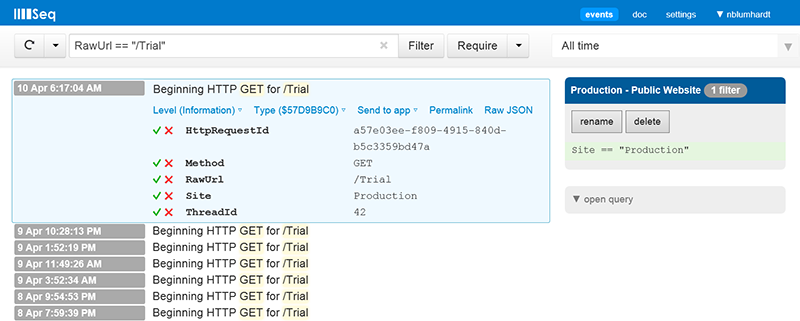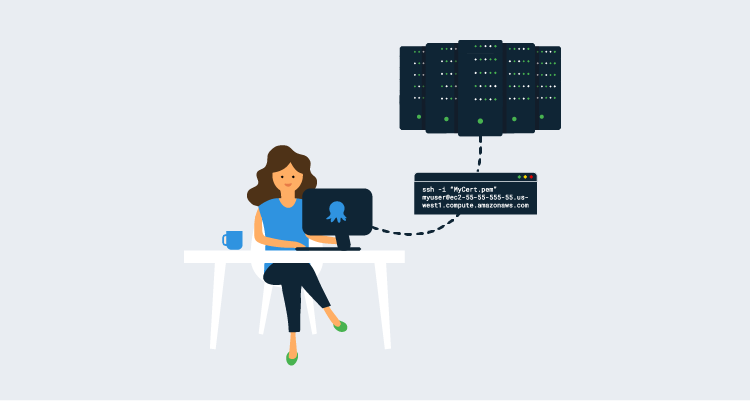On the first day of a new project, many teams install a CI server to build and test their application, and a deployment server like Octopus to get new versions into their test and production environments.
What’s missing from this setup is a way for the team to monitor the application when it gets there. Seq is a project from Nick’s company that just hit 1.0 and aims to fill in this gap, improving visibility smoothly all the way from development to production.
There are powerful log collection tools out there already, but few are fitted to the Windows and .NET toolchain well enough that they can be installed in a few minutes on “day 1”. Seq comes with an MSI for Windows Server, and NuGet packages that integrate with the popular .NET logging frameworks.
If you’re writing structured logs with a framework like p&p’s SLAB or Serilog, then Seq has some features that make it especially nice to filter and correlate events, too.

My favorite thing about Seq is that it makes collecting events about what happens in an application as easy as writing to a log. It means that during development, you can use structured logging to log information about what is happening, without worrying too much about how you’re going to use it later. Then just turn on Seq and suddenly those logs become far more useful and accessible than log files on disk. It’s a very worthwhile tool.
Seq comes in several supported professional editions as well as a free developer edition you can download from the Seq website. Hopefully you’ll find structured logging and Seq a useful tool in developing and operating your applications!





